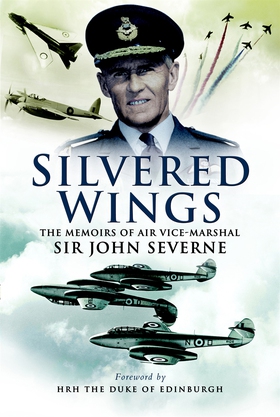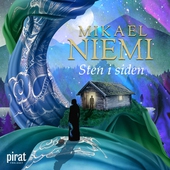
Lägg till önskelistan
Silvered Wings e-bok
Pris
89 kr
John Severne joined the RAF in 1944 and gained his wings two months after World War II ended. This book captures the author’s great passion for flying, whether it be in jet-fighters, light aircraft, helicopters or making model planes and gives details of his long a illustrious career.
His first posting was to No 264 Night Fighter Squadron flying the de Havilland Mosquito. On a flying instructor’s course at the Central Flying School, he flew a Lancaster, Spitfire and his first jet...
E-Bok
89 kr
Pris
Förlag
Pen and Sword
Utgiven
25 Februari 2021
Längd
256 sidor
Genrer
Historia & Arkeologi, Samhälle Och Politik, Biografier & Memoarer, Fackböcker
Språk
English
Format
epub
Kopieringsskydd
Vattenmärkt
ISBN
9781783460557
John Severne joined the RAF in 1944 and gained his wings two months after World War II ended. This book captures the author’s great passion for flying, whether it be in jet-fighters, light aircraft, helicopters or making model planes and gives details of his long a illustrious career.
His first posting was to No 264 Night Fighter Squadron flying the de Havilland Mosquito. On a flying instructor’s course at the Central Flying School, he flew a Lancaster, Spitfire and his first jet – the Vampire.
Posted to Germany as a flight commander on a Venom squadron, he was awarded an Air Force Cross for landing an aircraft that had caught fire. As a Squadron Leader, he became Equerry to the Duke of Edinburgh. Then followed a period as chief instructor on Britain’s first supersonic fighter, the English Electric Lightning. Later he became ‘Wing Commander Ops’ at the joint HQ of Middle East Command where he was involved in counter-terrorist operations in Aden. As Station Commander of RAF Kinloss, he was responsible for the introduction of the Nimrod in 1971 and at the height of the Cold War when these new anti-submarine aircraft were a vital part of Britain’s defense.




